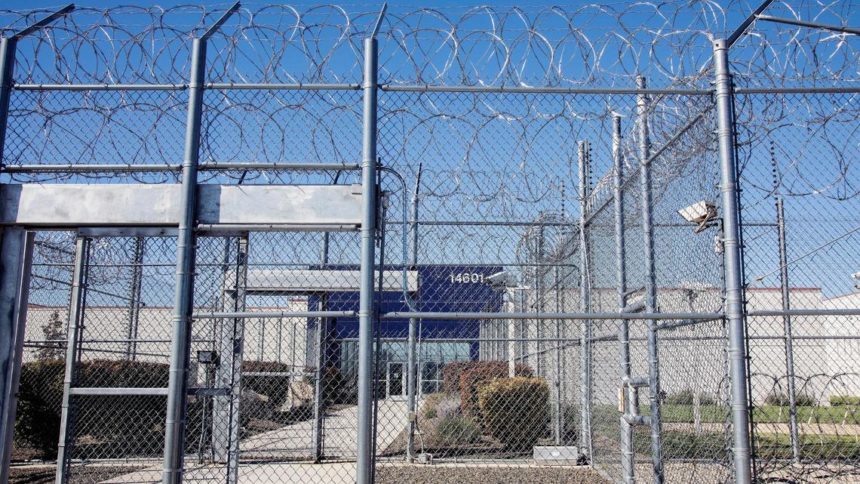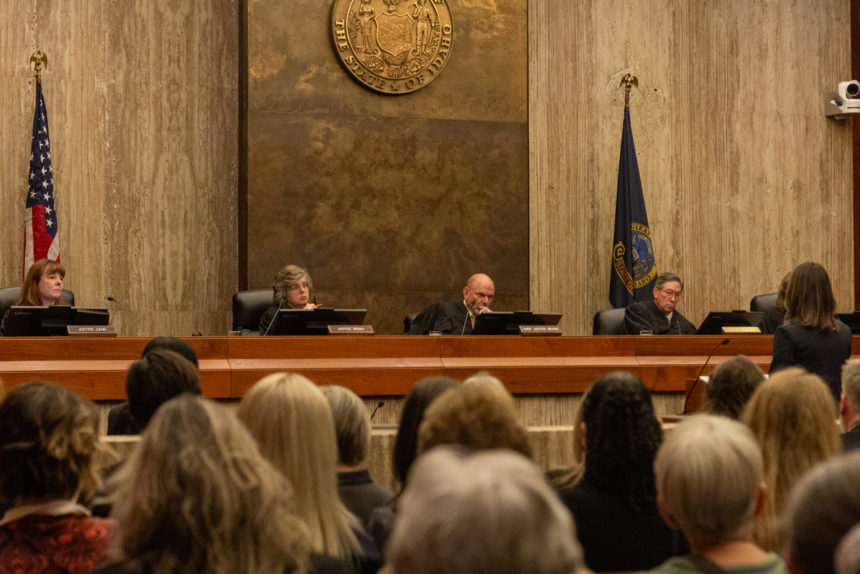Washington, D.C. Despite earlier legal losses, the Trump administration is once again putting pressure on liberal states and towns to assist with deportation efforts.
Attorney General Pam Bondi warned sanctuary states, towns, and counties in letters this week that they had better follow federal law enforcement and federal rules or we would pursue them, she said in a Fox News interview. She insisted that the regions respond to her by Tuesday.
Generally speaking, states and cities with so-called sanctuary policies decline to cooperate with immigration raids or grant requests for local jails to keep detainees pending deportation. Respondents to Stateline’s inquiries over the letters stated that they had no intention of changing their stances regarding collaboration with immigration officials.
It’s a bully’s strategy. In a statement, Democratic Attorney General Peter Neronha of Rhode Island stated that the only way to deal with a bully is to let them know that you will not be intimidated.
With regard to immigration arrests, the Trump administration is trying to compel greater cooperation. On July 25, however, a federal judge dismissed a sanctuary policies complaint against Illinois, Chicago, and Cook County, causing a significant judicial reversal.
Judge Lindsay Jenkins noted in an order that is currently being appealed that the state and local rules represent a decision to not take part in the enforcement of civil immigration law, a decision that is protected by the Tenth Amendment.
Bondi’s letters come after the Justice Department released a list of sanctuary jurisdictions on August 5, which included 18 cities, 12 states, the District of Columbia, and four counties. Compared to the 14 states and nearly 500 counties and cities that were on a previous list—which the government removed after receiving criticism for include conservative counties that were actively assisting immigration enforcement—that is a smaller number of jurisdictions.
California, Colorado, Connecticut, Delaware, Illinois, Minnesota, Nevada, New York, Oregon, Rhode Island, Vermont, and Washington state are among the states that have been added to the new list. In addition, a few counties and cities from Louisiana, Maryland, Massachusetts, Michigan, Pennsylvania, New Jersey, and New Mexico are included in the list.
It’s a bully’s strategy. Telling a bully that you will not be intimidated is the only way to deal with them.
Peter Neronha, the Democratic Attorney General of Rhode Island
To at least temporarily prevent the Trump administration from denying unrelated federal funds to nations that do not cooperate on immigration, several federal courts have granted injunctions. Lawsuits have been filed by cities, counties, and states against Trump’s executive orders that target sanctuary policies. One such order was issued in February, which stated that federal payments to states and localities cannot be used to support or encourage illegal immigration or to aid so-called sanctuary policies that aim to protect illegal aliens from deportation.
According to Jonathan Miller, one of the lawyers on the California case for the Public Rights Project, a California-based organization that advocates for civil rights protections for states and cities, the executive orders are essentially telling agencies to take a maximalist approach to pressuring local governments to cooperate with immigration [enforcement], even though they are not obligated to do so by federal law.
Rochester, New York, was one of the cities on the administration’s list. Some of its police officers were reprimanded for assisting federal investigators in making an arrest there in March. The Trump administration has already filed a lawsuit against the city, citing the arrest of three Guatemalan men, one of whom has already entered a guilty plea to reentering the country after being deported.
Trump’s list of immigration sanctuaries is riddled with errors, leaving states and sheriffs perplexed.
Nothing in Attorney General Bondi’s letter is new, and none of it has legal substance, Barbara Pierce, a municipal spokesperson, told The Guardian in a statement.
She said that the letter restates numerous baseless claims that the federal government has already made in its ongoing lawsuit against the city of Rochester. Almost a month ago, the federal district court for the eastern district of Illinois rejected the same claims made against the city of Chicago.
Colorado is not a sanctuary state, according to a statement from Ally Sullivan, a spokesman for Democratic Governor Jared Polis. The Governor is still annoyed by this inaccurate and erroneous designation. Polis noted in an atelevised interview earlier this year that Colorado fully collaborates with federal law enforcement on criminal cases. He asserted that immigration is a civil concern.
According to Sullivan, Colorado is working with federal law enforcement on criminal investigations, enhancing public safety, catching dangerous offenders, and maintaining the safety of our communities.
However, the administration has filed a federal lawsuit against Colorado for its purported sanctuary policy. In May, Polissigned a legislation that restricts the ability of local law enforcement to communicate with federal immigration authorities and limits the areas in which federal authorities can operate without a court order, including as schools, child care centers, hospitals, and libraries.
A new courthouse strategy used by ICE is to have immigration proceedings dismissed before making an arrest outside the courthouse.
The state’s Trust Act, which the Trump administration has criticized as a sanctuary policy, was passed with bipartisan support and helps ensure local police focus on serious crimes, Connecticut Democratic Governor Ned Lamont said in a statement. Enacted in 2013 and amended in 2019, the Trust Act restricts federal immigration officials’ ability to share information and comply with requests to detain foreign nationals.
According to Lamont, this does not in any way render Connecticut a sanctuary in the legal or practical sense; rather, it establishes our state as one that respects the rule of law, protects the Constitution, and places a high priority on community safety and well-being.
Tim Henderson, a Stateline reporter, can be contacted [email protected].
As a 501c(3) public charity, Stateline is a component of States Newsroom, a nonprofit news network backed by grants and a coalition of donors. Editorial independence is upheld by Stateline. For inquiries, send an email to [email protected] to reach Editor Scott S. Greenberger.












